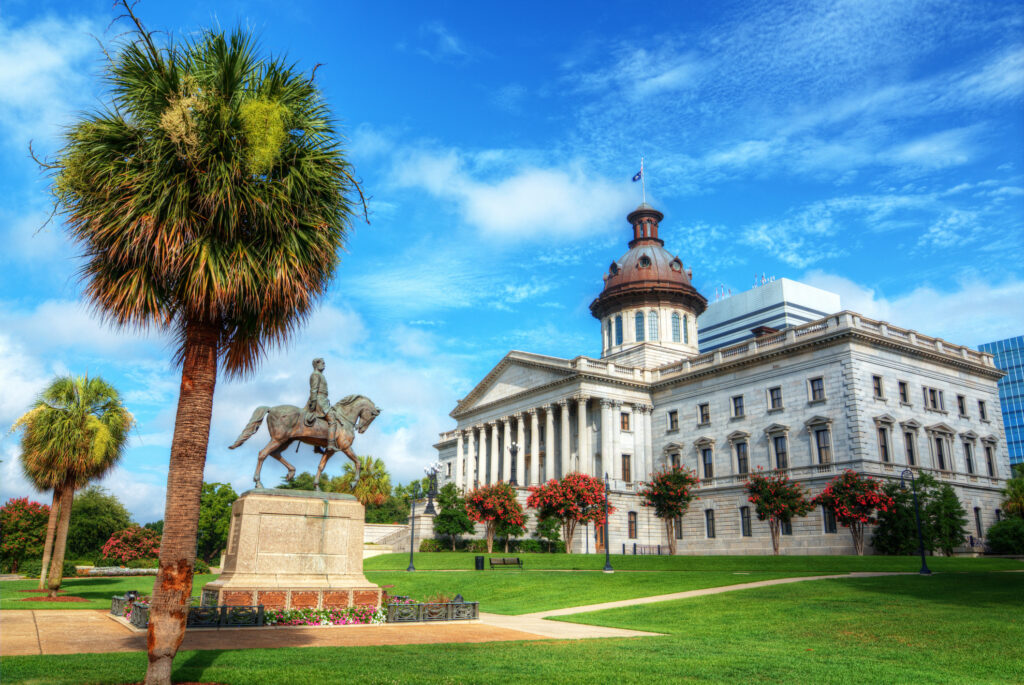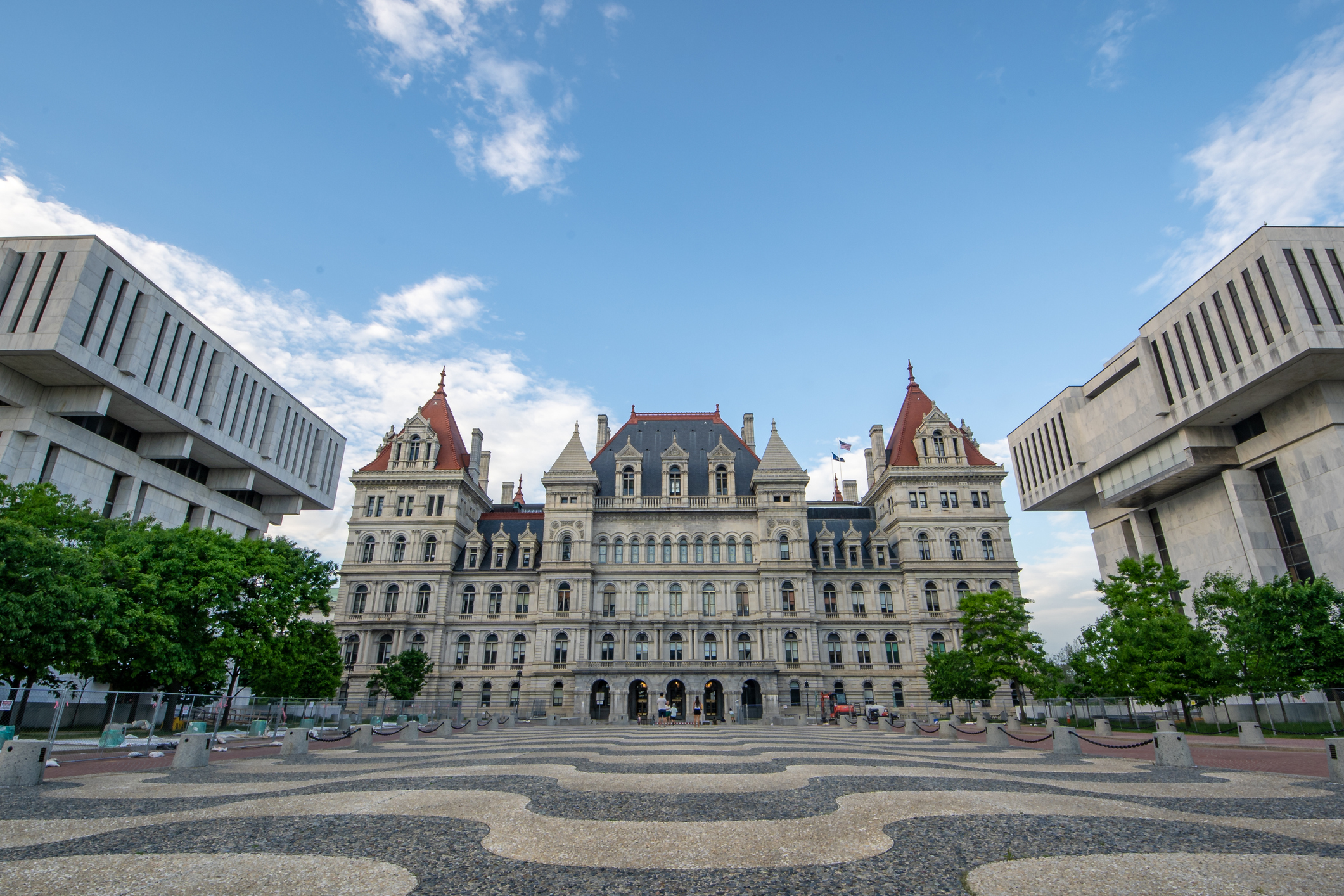
On January 24, 2024, South Carolina Governor Henry McMaster (R) delivered his State of the State Address, emphasizing bold action and outlining priorities for South Carolina’s future. Addressing cultural heritage, infrastructure, natural resources, justice systems, healthcare, education, and economic prosperity, McMaster urged collaboration, highlighting civility and pride among citizens.
Civil & Criminal Justice Changes
McMaster presented a comprehensive plan to change South Carolina’s civil and criminal justice system, emphasizing “accountability and just compensation”. He argued that joint and several liability create too much uncertainty for businesses in the state. He also introduced a new procedure requiring detailed applications and release records related to attorney or judicial disciplinary proceedings. McMaster also proposed to change the way circuit and appellate court judges are seated—taking that power from the legislature to elect judges and assigning the power to the governor to appoint them with the advice and consent of the state senate. Additionally, McMaster addressed law enforcement personnel retention with a proposed $17.8 million budget for recruitment and retention pay raises. Additional initiatives include a $2,000 state income tax credit for active-duty law enforcement officers, suspension of the $10,000 retirement cap, $13.4 million to assign officers to schools without resource officers, $566,000 to hire three SLED agents to combat animal fighting cruelty, and $23 million statewide expansion of the contraband phone interdiction program. Emphasizing the need for stricter criminal penalties, McMaster urged the General Assembly to pass graduated criminal penalties for illegal gun possession, targeting repeat offenders.
Economic Expansion and Fiscal Stewardship
McMaster’s multifaceted economic strategy for South Carolina will prioritize substantial investments, fiscal responsibility, and targeted workforce development. Major corporations, including Scout Motors, Albemarle, e-VAC Magnetics, ZF Transmissions Grey Court, Pallidus, Cirba Solutions, and Milo’s Tea, will spend over a billion dollars in various counties, creating jobs across diverse industries ranging from electric vehicles (EVs) to rare earth magnets. Emphasizing the state’s role in advanced manufacturing, particularly EVs and batteries, McMaster proposed a $50 million allocation for specialized “EV training institutes” to meet skilled workforce demands. He recognized the state as a Regional Technology and Innovation Hub and outlined eligibility for substantial annual federal grant funding. McMaster also committed to securing the state’s energy future through initiatives like the EV Working Group and the PowerSC Energy Resources and Economic Development Interagency Working Group, demonstrating strategic planning and collaboration. Simultaneously, he underscored fiscal responsibility, advocating for a low general obligation debt and a robust rainy-day reserve fund, proposing an additional $54.3 million allocation. This financial prudence aligns with acknowledging a scheduled $99 million income tax cut in the executive budget, with potential acceleration pending future revenues.
Education Initiatives
Recognizing education’s role in prosperity, McMaster proposed consistent investment for the state’s future success. The proposed budget will allocate $21.1 million to support increased enrollment in the full-day, four-year-old kindergarten program and an additional $10 million for enhanced math education. The budget also includes $30 million for the Education Scholarship Trust Fund, a minimum starting teacher salary of $45,000 for the next school year, with a target of $50,000 by 2026. The proposal features a fifth consecutive freeze on in-state college tuition, funds for workforce industry scholarships, and extended aid for federal Pell Grant qualifiers and private institution grants.
Infrastructure and Heritage Preservation
McMaster stressed the need for transformative investments to repair South Carolina’s transportation infrastructure while preserving the state’s natural landscape and cultural heritage. To address strained roads due to rapid growth, he proposed using $500 million from the Homestead Exemption Fund for emergency bridge replacement and repairs. This funding would ensure functionality for commercial trucking, school buses, and emergency vehicles, sustaining a reliable transportation network. Additionally, McMaster highlighted the interconnected relationship between economic growth and heritage conservation. He proposed allocating $33 million to identify, preserve, and safeguard South Carolina’s unique history, culture, and environment from development, flooding, erosion, and mismanagement threats for future generations.
Mental Health Initiatives
McMaster addressed South Carolina’s mental health crisis, particularly for school-aged children affected by challenges exacerbated during the COVID-19 pandemic. Recognizing the fragmented health and human service delivery system as a significant hurdle, he noted that 77% of young people with major depressive episodes lack essential mental health treatment. As a result of this dysfunction, families and friends have struggled as well. He proposed restructuring and consolidating healthcare delivery agencies into a unified cabinet agency to tackle this issue. This initiative aims to streamline coordination, communication, and collaboration, providing more efficient, effective, and professional crisis mental health care services, including improved access to substance abuse support, disability services, and aid for the elderly and at-risk populations.
Workforce Regulation
McMaster addressed “a clear and present danger from the big labor unions” seeking to expand membership in South Carolina, a right-to-work state. McMaster promised to resist organized labor action, particularly in response to an International Longshoremen’s Association boycott targeting the Port of Charleston. With the issue escalating to the United States Supreme Court, McMaster emphasized the importance of anti-union policies and pledged to vigorously prevent potential disruptions to manufacturing, hospitality, and tourism businesses.
Latest News
Photo credit: iStock.com/urfinguss Governors' State of the State addresses serve as annual roadmaps outlining each state's legislative priorities and policy vision for the year ahead. These speeches often focus on economic growth, public safety, [...]
Photo credit: iStock.com/BackyardProduction Governor Josh Shapiro delivered his 2025-26 budget address, outlining economic initiatives, public safety measures, infrastructure improvements, and education funding. His speech emphasized continued investment in key sectors to strengthen Pennsylvania’s [...]
Photograph taken inside the state capitol of the spectacular 272-foot, 52 million-pound dome. On February 6, 2024, Pennsylvania Governor Josh Shapiro (D) delivered his 2024-25 Budget Address. Shapiro's 2024 budget aims to provide tangible benefits [...]
Photo credit: iStock.com/Brian Logan On January 9, 2024, New York Governor Kathy Hochul (D) delivered her State of the State Address, introducing 204 initiatives to improve the state’s affordability, livability, and safety. Emphasizing crime reduction, [...]






Stay In Touch